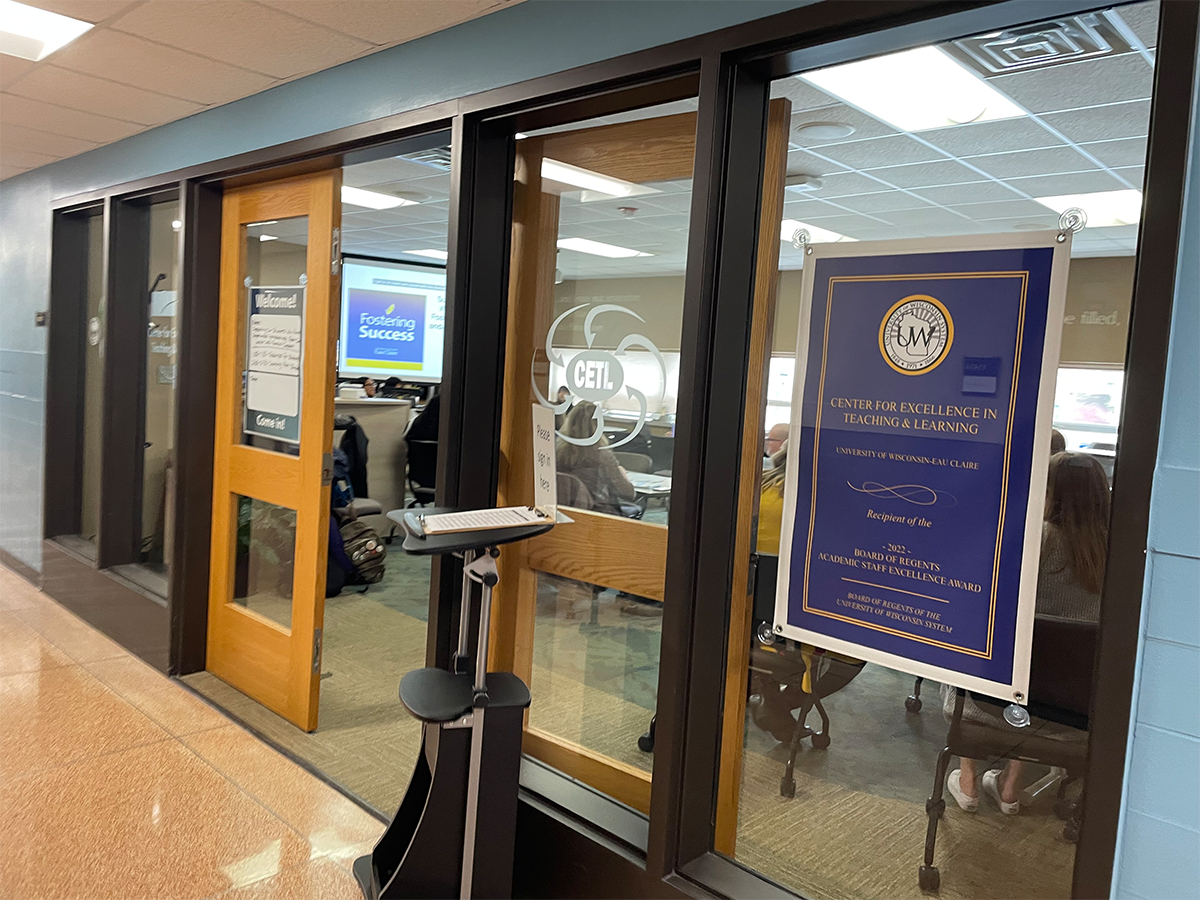Kristine Knutson, the department chair and professor of communication and journalism at UW-Eau Claire, gave a speech at the Faculty Forum series on professionalism and neurodivergence.
Knutson’s presentation was titled “Problematizing ‘Professional’: Expanding the Conceptualization of the Term to Normalize Neurodivergent Experiences.” The presentation was around 30 minutes long with a 10 minute question and answer portion at the end.
The presentation was open to both students in staff, hosted in-person in the Center for Excellence in Teaching and Learning (CETL). The presentation was also live streamed for people to watch and interact from home.
The presentation was based on research that Knutson and current undergraduate communication and journalism students have been working on throughout the semester. Knuston also said that her son inspired her to explore neurodivergence research.
She discussed communication competence and how it’s defined as being effective and appropriate. She explored that appropriateness and how communication is meant to meet a situation.
Knutson said the appropriateness of communication is based on expectations from privileged members of society, making it difficult at times for neurodivergent individuals to fit into the set standard.
She gave an example of eye contact and negative perceptions people can have for people who don’t make eye contact. The presentation looked at how eye contact can be difficult for neurodivergent people and how they can be judged for having poor communication.
Knutson then went on to explore neurodivergence itself and what it can entail when it comes to ‘professional’ communication.
The presentation also included a video from a neurodivergent Youtuber who also explained how eye contact doesn’t always make sense for a neurodivergent individual to complete, making it even more difficult to pay attention when maintaining eye contact.
Knutson reflected on communication courses she teaches and discussions around professionalism. She said that some foundational concepts and contrasts are not easy for neurodivergent individuals to perform.
“By continuing to reiterate that these are the ‘right’ ways and teaching people that this is ‘proper’ communication, what we are doing is consistently building this space where we are labeling neurodivergent communications, or some neurodivergent communicators, as incompetent,” Knutson said.
Knutson included an activity where members of the audience would define what they considered professional on post-it notes. Knutson used this activity to discuss perceptions of professionalism based around society. She collected the sticky notes at the end to help with her research.
At the end of the presentation, a question portion of the forum began and members of the crowd and the Zoom meeting were able to ask follow-up questions from Knutson.
“What’s the difference between neurodivergent and a communication disorder?” Won Yong Jang said, a communication and journalism professor at UW-Eau Claire.
Knutson said the difference is based on the changing perceptions around neurodivergence. As research and conversations continue, the verbiage changes. Knutson said the perception of a disorder is an older mindset when it’s describing a difference in thought, not a disorder.
Knutson further discussed neurodivergence history and perceptions over time, neurodivergence in K-12 education and the current state of research around neurodivergence.
Knutson’s presentation was the last scheduled Faculty Forum for the year. A total of eight presentations were planned and shared over the past academic semester from professors in the nursing, psychology, finances, public health and political science fields.
Past faculty forum presentations can be found on the Office of Research and Sponsored Programs Youtube channel and the schedule can be found on the ORSP’s website at the beginning of the fall semester.
Fisher can be reached at [email protected].








